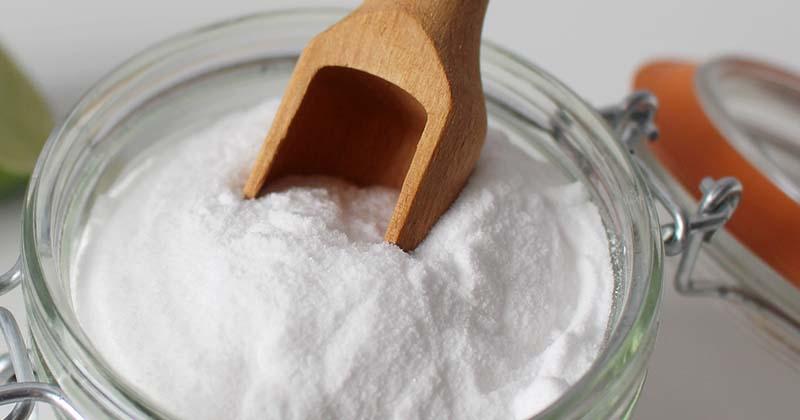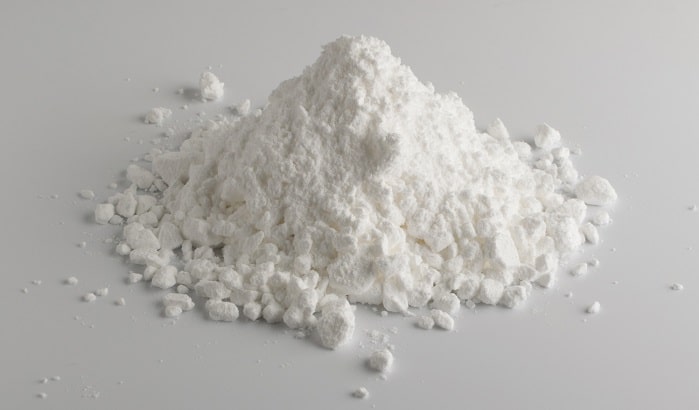We’ve been sharing our house with a multitude of rodents for years, our old house seems to double up as a mouse condominium.
While I’m not keen on using poison, fearing it might kill something other than a pesky rodent, I’m reaching the end of my tether now. I’m still determined to use natural repellants and humane traps as far as possible but decided I’d look into the possibility of poison as a backup plan.
You are watching: Homemade Mouse Poison: 7 Tried And Tested Recipes (Including One That Doesn’t Work)
The following recipes all use common household products as the bait to entice the mouse and the poison that will eventually kill it.
7 Tried And Tested Recipes For Homemade Mouse Poison (Including One That Doesn’t Work)
#1 Baking Soda

Due to its versatility, most homes have some baking soda stored in the kitchen. As well as being used as a cleaning agent, anti-acid, and leavening agent, baking soda is also a surprisingly effective mouse poison.
Rodents can’t expel carbon dioxide as humans can, so when the bicarbonate in the baking soda reacts with the acids in the rodent’s stomach and produces carbon dioxide, the gas builds up inside the digestive system. Eventually, it will cause a blockage or rupture and kill the mouse.
Mice don’t naturally sit down to a meal of baking soda, so you’ll need to combine it with something appetizing to spark their interest. You can use any of the following as bait for your baking soda poison:
- Peanut butter – mix with baking soda and then roll into balls and place around your home
- Flour and sugar – mix equal parts of sugar, flour, and baking soda. Leave in a shallow dish.
- Cocoa powder – chocolate is difficult for anyone to resist, including mice. Combine equal amounts of cocoa powder and baking soda, and then add a little sugar to sweeten the deal.
While baking soda is safe for children and pets, it’s not particularly humane. Few poisons are, I suppose.
Larger mice and rats also need to consume a considerable amount of baking soda before it kills them, which means you could witness ailing mice stumbling around your house.
#2 Aspartame

Aspartame is an artificial sweetener that’s readily available and very affordable. Although considered safe for human consumption, research has shown that aspartame, along with a similar substance known as neotame, are “toxic to the digestive gut microbes of mice.”
Read more : Take the Edge Off™ vs. Stop Your Wine-ing®: Comparing Our Wine-Inspired Herbal Remedies
Mix one sachet of aspartame sweetener, like this one, into one teaspoon of peanut butter. Roll the mixture into two balls of equal size and place them in strategic positions around your home. Attracted by the irresistible scent of peanut butter, mice will gobble this mixture up and die soon afterward.
It does take a while for aspartame to take effect so, if you’re impatient like me, you might want to combine it with something a little faster-acting, like instant mashed potato.
#3 Instant Mashed Potato Flakes
I’ve always maintained that instant mashed potato is closer to poison than food, and it seems that, for mice at least, this is true.
This non-toxic approach to poisoning mice is one the safest, especially if you have pets. Few cats or dogs will tuck into a dish of instant mashed potato flakes, but mice seem more than happy to gorge themselves on the stuff.
Once they’ve eaten their fill, they become extremely thirsty. As they drink, the water causes the mashed potato flakes to expand in the mouse’s stomach, killing them instantly.
Sprinkling a sachet of artificial sweetener over the mashed potato flakes makes them even more appealing to mice and will help ensure they eat enough of the substance to seal their fate.
#4 Cement Mix
While this isn’t something everyone has in their kitchen, it is easily available and very effective, assuming you can persuade a mouse to eat it. If a mouse does ingest this, it will quickly harden as it comes into contact with the animal’s digestive juices.
For the cement mix to work effectively, you need to mix the powder with something tempting, like peanut butter or cocoa powder. Peanut butter works well as it makes the mixture malleable so, you can roll it into balls and place it in strategic places around the house.
As cats and dogs are just as keen on peanut butter as the rest of us, this homemade mouse poison is not recommended if you have pets.
#5 Plaster of Paris
If you can’t get your hands on cement mix, plaster of Paris will work just as well. An alternative approach is to combine plaster of Paris or cement mix with cornflour and then add milk or water to form a dough. Knead for a minute or two before rolling into balls and placing them around the house.
The cement mix and plaster of Paris will both harden after a few days of being exposed to the atmosphere and must be replaced regularly.
#6 Boric Acid – Doesn’t work!
Read more : Crystalarium: What is it and How to Get One Fast?
According to some, boric acid is one of the best and most effective poison recipes out there. Others disagree, saying it causes only “developmental toxicity.” In other words, while it can harm a rodent’s unborn fetuses, it won’t get rid of your current mouse problem.
You can still use it to dispose of cockroaches and ants, but it’s not worth getting if the mouse is your only enemy.
#7 Vitamin D-3
While Vitamin D may be essential for human health, it can be fatal to other animals, including rodents. The active ingredient, cholecalciferol, is found in many vitamin D-3 supplements and a multitude of rodent poisons.
Vitamin D-3 is a fast-acting poison that causes such high calcium and phosphorus levels in the mouse’s body that it results in kidney failure, heart problems, and bleeding. It’s so effective that it’s been turned into a spray to tackle New Zealand’s “super rats.”
I found a random fact that claimed you would need around 100,000 IU of vitamin D3 to have a 50% chance of killing an 80 oz rat. As most of the rodents we get in our homes weigh between 0.6 to 17 oz, a single 5000 IU tablet should be enough to make a decent dent in the population.
Crush up the tablet, or empty the contents of the capsule, and then mix it up with some peanut butter. Place small balls around the house and wait for a couple of days.
It’s tempting to think of vitamins as relatively benign substances, but vitamin D-3 is toxic to dogs, cats, and children, so be sure you keep it well out of reach.
Read more about homemade rat poison.
Conclusion
Most of these recipes for homemade mouse poison will make a dent in any problematic rodent population. Some, like instant mashed potato flakes, are even safe to use around pets and children. They won’t even present a threat to wild birds and animals.
None are particularly pleasant for the mouse, and if you want to find a more humane way of dealing with a mouse invasion, try some of the tips I explored when figuring out how to rodent-proof my food storage.
Also read:
- How to make a DIY bait station
- Can you eat mice?
- How to make a bucket mousetrap
Source: https://gardencourte.com
Categories: Recipe

